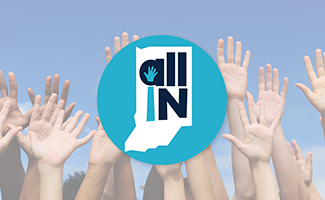This study explored how families use online information to adapt during the COVID-19 quarantine. During the pandemic, quarantined individuals use online technology to seek updated information about the outbreak and self-protective recommendations and to communicate, shop, work, and study. ToRead More
About James Dudley
May 14, 2020
This commentary encourages nurses, in particular, to be mindful of what they communicate on social media during the COVID-19 pandemic because of its impact on others. People look to health care staff for cues about what to do during theRead More
Tags:
May 13, 2020
All IN for Health: Encouraging healthy activity throughout the Hoosier state Jessica Hall, Christine Drury, and Carmel Egan, PhD Impact: The Indiana Clinical and Translational Sciences Institute’s All IN for Health program is dedicated to improving the health of IndianaRead More
May 13, 2020
This study found that most online COVID-19 information is written at or above a 10th grade reading level, making it difficult for the average American to read and understand. Most people turn to written information to understand what is occurringRead More
Tags:
May 13, 2020
This research study assessed the public’s risk perceptions concerning COVID-19 and its’ assessment of the government’s crisis management. Results from this online survey highlight the critical need for government leaders to establish trust with the public for compliance. Information mustRead More
Tags:
May 12, 2020
This conference proceeding offers suggestions for rebuilding government’s credibility if lost during the COVID-19 pandemic. Government credibility and public emergencies influence each other. Government can gain credibility if it handles emergencies effectively, and government can also be a barrier toRead More
Tags:
May 12, 2020
This paper provides a guide for government to coordinate and resource communication efforts during the COVID-19 pandemic. Strategic planning to combat COVID-19 must be taken quickly. The authors use guiding principles of behavior change theories to provide suggestions for developingRead More
Tags:
May 11, 2020
This article used internet search data to assess collective attention and information-seeking search patterns following government announcements related to COVID-19. Announcements of the first state COVID-19 cases had the largest effect on people’s information-seeking behaviors related to the virus andRead More
Tags:
May 11, 2020
This research article presents strategies for increasing public awareness and responses to COVID-19, which begins with timely publicity. Public awareness of COVID-19 varies not only among countries but also within different regions within countries, according to an analysis using GoogleRead More
May 11, 2020
This working paper suggests that perceived social norms has a large effect on individuals’ willingness to perform different preventive behaviors. In a large national survey of nearly 4,000 people, researchers determined that horizontal communication between friends and family is likelyRead More
Tags:


